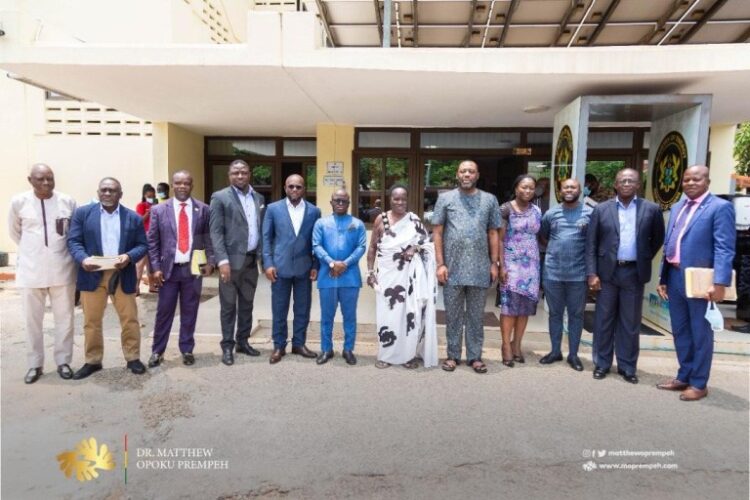The Chief Executive Officer together with the management of the Ghana Free Zones Authority (GFZA) has congratulated the newly established management board of the Petroleum Hub Development Corporation.
The GFZA’s CEO, Michael Oquaye in a message was hopeful that the new Board will continue the cordial relationships between the two institutions to advance the national development goals.
He also extended special congratulations to Kwame Asante Nsiah, the Ghana Free Zones Authority representative on the PHDC’s governing Board.
The management board, recently named by President Akufo-Addo following approval by the Council of State was sworn in by the Energy Minister, Dr. Matthew Opoku Prempeh.
The Board is chaired by Awulae Annor Adjaye II, the President’s nominee to the Board.
Others are; Charles Owusu, C.E.O. of the PHDC; Kwame Asante Nsiah, Representative of the Free Zone Authority; Humphrey Ayim Darke, Representative of the Association of Ghana Industries; Senyo Kwasi Hosi, Representative of the Chamber of Bulk Oil Distributors.
Also on the Board are; Yaw Agyemang-Duah, an expert in the downstream Petroleum Industry; David Ampofo, Representative of Ghana Upstream Petroleum Chamber; Maame Ofewah Sarpong and Samuel Erickson Abakah, who was nominated by the President.
The Board is expected to provide the advice and direction needed by the newly established institution to develop an integrated petroleum industry in the country, which experts estimate to be worth over USD 60 billion when fully activated.
This is in line with the government’s vision for accelerated industrialisation on the back of the country’s oil and gas resources to fully exploit its oil and gas resources and derive much greater values than it is currently doing.
In addition, when completed, the hub will facilitate the manufacture of petroleum products such as plastics, fertilizers, and various industrial chemicals.
For its part, the Ghana Free Zones Authority is a public service institution designed to promote the processing and manufacturing of goods through the establishment of Export Processing Zones (EPZs).
It is also mandated to encourage the development of commercial and service activities at sea and airport areas.











